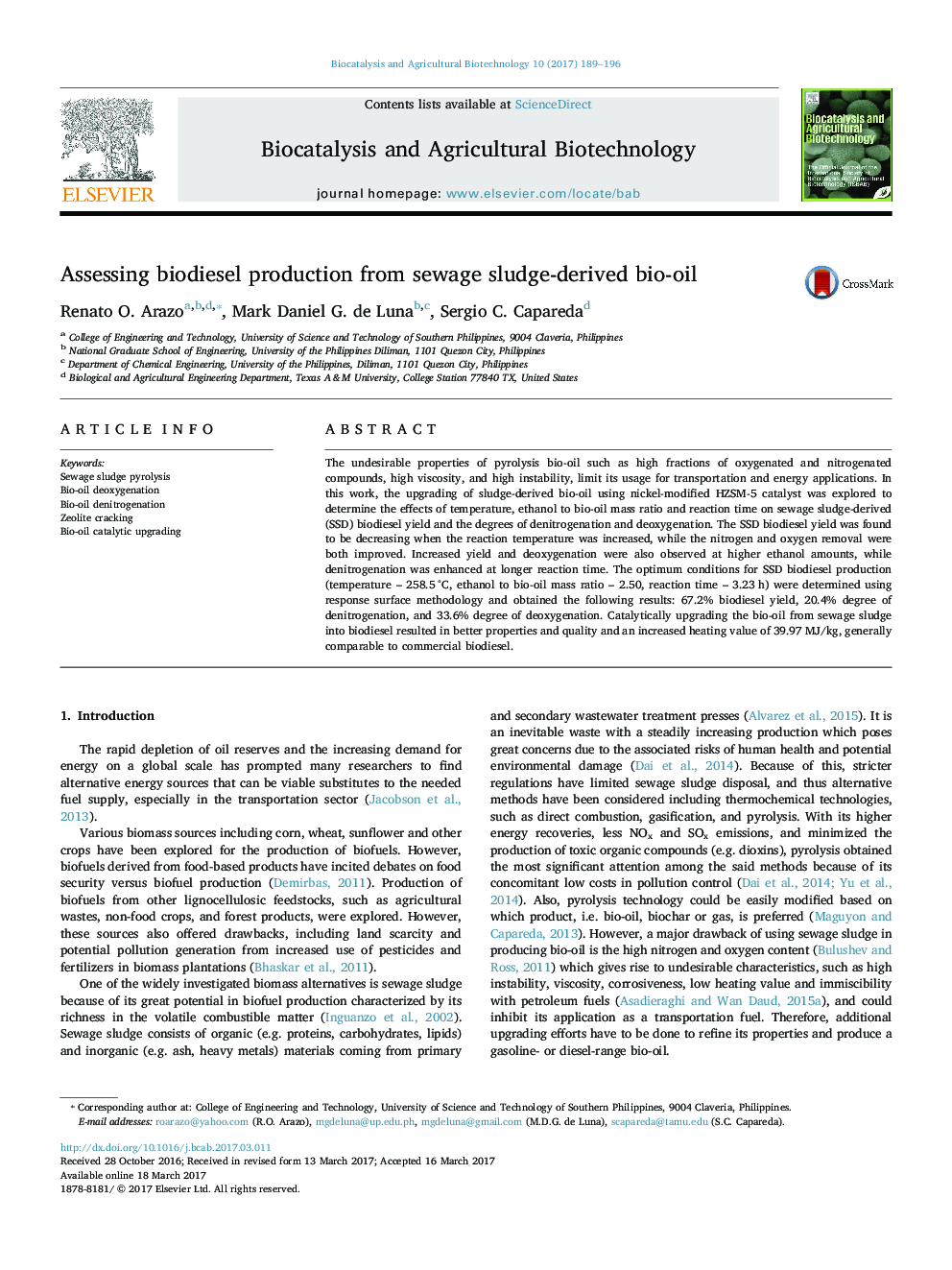| Article ID | Journal | Published Year | Pages | File Type |
|---|---|---|---|---|
| 5520491 | Biocatalysis and Agricultural Biotechnology | 2017 | 8 Pages |
â¢Catalytic upgrading enhanced the quality of the sewage sludge-derived bio-oil.â¢Bio-oil yield is improved at low temperatures and high ethanol amounts.â¢Nitrogen removal is enhanced with higher temperature and longer reaction time.â¢Deoxygenation significantly increased at higher temperatures.
The undesirable properties of pyrolysis bio-oil such as high fractions of oxygenated and nitrogenated compounds, high viscosity, and high instability, limit its usage for transportation and energy applications. In this work, the upgrading of sludge-derived bio-oil using nickel-modified HZSM-5 catalyst was explored to determine the effects of temperature, ethanol to bio-oil mass ratio and reaction time on sewage sludge-derived (SSD) biodiesel yield and the degrees of denitrogenation and deoxygenation. The SSD biodiesel yield was found to be decreasing when the reaction temperature was increased, while the nitrogen and oxygen removal were both improved. Increased yield and deoxygenation were also observed at higher ethanol amounts, while denitrogenation was enhanced at longer reaction time. The optimum conditions for SSD biodiesel production (temperature - 258.5 °C, ethanol to bio-oil mass ratio - 2.50, reaction time - 3.23 h) were determined using response surface methodology and obtained the following results: 67.2% biodiesel yield, 20.4% degree of denitrogenation, and 33.6% degree of deoxygenation. Catalytically upgrading the bio-oil from sewage sludge into biodiesel resulted in better properties and quality and an increased heating value of 39.97 MJ/kg, generally comparable to commercial biodiesel.
